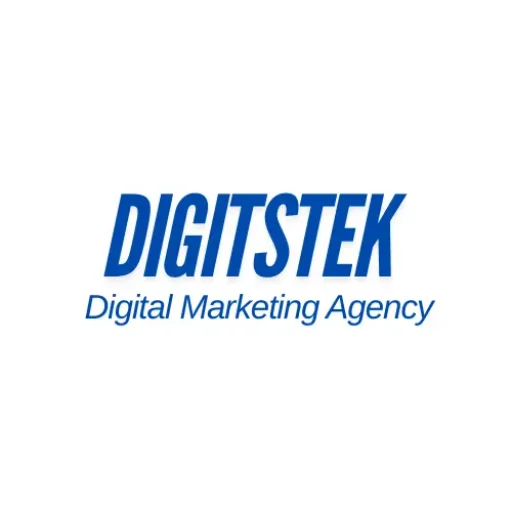
Introduction
Hook:
Did you know 70% of consumers prefer learning about a company through articles rather than ads? This stat underscores the transformative power of content marketing in today’s digital landscape. It’s not just about pushing products; it’s about providing value, educating, and building trust with potential customers. In Houston’s highly competitive business environment, leveraging content marketing can help you stand out and drive more qualified leads.
Relevance:
Houston is home to a diverse economy, from energy and healthcare to technology and retail. With such varied industries vying for the attention of consumers, businesses must find ways to engage their target audiences more effectively. Content marketing offers a unique approach to this challenge, enabling companies to connect with local customers, build relationships, and generate leads—without the hard sell. With a strategic digital marketing plan, Houston-based businesses can tap into the power of relevant, localized content that resonates with their audience’s needs and interests.
Thesis:
This blog will guide you through the steps of creating a winning digital marketing strategy that taps into the potential of content marketing for lead generation. By focusing on localized SEO, creating compelling content, and utilizing the right channels, your business can thrive in Houston’s competitive market and convert prospects into loyal customers. Whether you’re a small business or an established player, content marketing can be the game-changer in your strategy to succeed.
Understanding Houston’s Market Dynamics
A. Diverse Demographics and Industries
Houston is one of the most economically diverse cities in the U.S., with key industries ranging from energy to healthcare, tech, retail, and manufacturing. The energy sector, for example, remains a powerful player, while tech startups and healthcare innovations are increasingly driving growth in the region. With such a diverse business landscape, companies must tailor their digital marketing strategies to speak directly to the unique needs of each sector.
- Energy Industry: For energy businesses, content might focus on sustainability, innovation, and regulatory changes affecting the sector.
- Healthcare: Healthcare businesses can benefit from creating content that addresses local health concerns, introduces new medical technologies, or educates the community about health and wellness.
- Tech: The tech sector may emphasize innovation, software solutions, and local tech events, using content that highlights Houston’s role as a growing tech hub.
Each industry brings with it specific language, values, and pain points, making it crucial for companies to understand how to connect with their audience. A one-size-fits-all approach won’t resonate; instead, creating content that addresses the unique challenges and opportunities within each sector is key to success in Houston’s competitive market.
B. The Importance of Local Relevance
To effectively engage Houston’s audiences, businesses must prioritize local relevance in their content strategy. Houston is a city with a deeply rooted culture, diverse communities, and unique local issues that shape the lives of its residents.
- Understanding Local Culture: A business in Houston must understand and reflect the cultural nuances that resonate with local customers. For example, promoting a product or service that relates to Houston’s lifestyle—whether it’s related to outdoor activities, local food, or community events—helps to build a deeper connection.
- Tapping into Local Events and Issues: Incorporating local events, news, or trends into content can significantly boost engagement. Businesses that align themselves with Houston-centric topics—such as the Houston Rodeo, local sporting events, or emerging trends in the energy sector—are more likely to capture the attention of potential customers.
- Location-Based Keywords: Additionally, using location-based keywords in SEO can improve search engine rankings for terms like “best HVAC services in Houston” or “top marketing agency in Houston.” Localizing content helps businesses stand out in a city that has a high concentration of businesses competing for consumer attention.
By tailoring your content to reflect the unique dynamics of Houston, you ensure it resonates with your audience while also aligning with what they care about most—local relevance.
What Is Content Marketing and Why It Works
A. Definition and Types of Content Marketing
Content marketing involves creating valuable, informative, and engaging content aimed at attracting and retaining an audience. It’s not just about selling products or services; it’s about providing content that addresses your target audience’s interests and needs. In Houston, with its competitive landscape, effective content marketing is a necessity to stand out.
- Blog Posts: Writing informative and optimized blog posts that address common questions or concerns of Houston-based customers. Topics might range from local industry trends to how-to guides related to your products or services.
- Videos: Engaging and shareable video content, such as tutorials, behind-the-scenes videos, or customer testimonials, can be a powerful way to showcase your business while keeping it local.
- Infographics: Visual content like infographics simplifies complex information and makes it easier for audiences to understand and share, which can be useful for explaining industry trends or processes in Houston.
- Case Studies: Demonstrating the impact of your product or service through real-life examples or case studies can increase credibility, especially when they’re relevant to Houston-based businesses or industries.
These types of content work together to build a comprehensive digital marketing strategy that connects with customers at various stages of the buyer journey.
B. The Psychology of Trust and Value
Content marketing works because it builds trust. In today’s digital age, consumers are less inclined to trust traditional advertising and more likely to trust content that provides them with real value.
- Building Trust: When businesses share helpful and insightful content, they establish themselves as knowledgeable and reliable sources in their field. This is especially critical in a market like Houston, where competition is fierce, and customers want to be confident they’re making the right choice.
- Establishing Authority: By consistently creating authoritative content, your business becomes a trusted leader in its field. For example, sharing expert insights on Houston-specific issues or offering solutions to common local challenges can help your business become the go-to resource.
- Nurturing Prospects: Content marketing nurtures leads by providing valuable information throughout their buyer journey. Whether it’s educational blog posts, social media content, or email newsletters, consistently offering relevant content helps keep your brand top-of-mind.
C. Key Metrics That Prove Effectiveness
The success of content marketing can be measured through a variety of key metrics. Tracking the following will show how your content is contributing to lead generation in Houston’s competitive market:
- Traffic: Monitor the number of visitors coming to your website, especially from Houston-specific sources, to measure interest and visibility.
- Lead Conversion Rates: Analyze how well your content converts visitors into leads by tracking form submissions, sign-ups, or consultation requests.
- Customer Retention: Evaluate how content impacts customer loyalty. Engaging content can help maintain an ongoing relationship with clients, ensuring repeat business and referrals.
By focusing on these metrics, you can assess whether your content strategy is effective and make data-driven decisions to improve results.
Understanding Houston’s Market Dynamics
A. Diverse Demographics and Industries
Houston is one of the most economically diverse cities in the U.S., with key industries ranging from energy to healthcare, tech, retail, and manufacturing. The energy sector, for example, remains a powerful player, while tech startups and healthcare innovations are increasingly driving growth in the region. With such a diverse business landscape, companies must tailor their digital marketing strategies to speak directly to the unique needs of each sector.
- Energy Industry: For businesses in energy, content might focus on sustainability, innovation, and regulatory changes affecting the sector.
- Healthcare: Healthcare businesses can benefit from creating content that addresses local health concerns, introduces new medical technologies, or educates the community about health and wellness.
- Tech: The tech sector may emphasize innovation, software solutions, and local tech events, using content that highlights Houston’s role as a growing tech hub.
Each industry brings with it specific language, values, and pain points, making it crucial for companies to understand how to connect with their audience. A one-size-fits-all approach won’t resonate; instead, creating content that addresses the unique challenges and opportunities within each sector is key to success in Houston’s competitive market.
B. The Importance of Local Relevance
To effectively engage Houston’s audiences, businesses must prioritize local relevance in their content strategy. Houston is a city with a deeply rooted culture, diverse communities, and unique local issues that shape the lives of its residents.
- Understanding Local Culture: A business in Houston must understand and reflect the cultural nuances that resonate with local customers. For example, promoting a product or service that relates to Houston’s lifestyle—whether it’s related to outdoor activities, local food, or community events—helps to build a deeper connection.
- Tapping into Local Events and Issues: Incorporating local events, news, or trends into content can significantly boost engagement. Businesses that align themselves with Houston-centric topics—such as the Houston Rodeo, local sporting events, or emerging trends in the energy sector—are more likely to capture the attention of potential customers.
- Location-Based Keywords: Additionally, using location-based keywords in SEO can improve search engine rankings for terms like “best HVAC services in Houston” or “top marketing agency in Houston.” Localizing content helps businesses stand out in a city that has a high concentration of businesses competing for consumer attention.
By tailoring your content to reflect the unique dynamics of Houston, you ensure it resonates with your audience while also aligning with what they care about most—local relevance.
III. What Is Content Marketing and Why It Works
A. Definition and Types of Content Marketing
Content marketing involves creating valuable, informative, and engaging content aimed at attracting and retaining an audience. It’s not just about selling products or services; it’s about providing content that addresses your target audience’s interests and needs. In Houston, with its competitive landscape, effective content marketing is a necessity to stand out.
- Blog Posts: Writing informative and optimized blog posts that address common questions or concerns of Houston-based customers. Topics might range from local industry trends to how-to guides related to your products or services.
- Videos: Engaging and shareable video content, such as tutorials, behind-the-scenes videos, or customer testimonials, can be a powerful way to showcase your business while keeping it local.
- Infographics: Visual content like infographics simplifies complex information and makes it easier for audiences to understand and share, which can be useful for explaining industry trends or processes in Houston.
- Case Studies: Demonstrating the impact of your product or service through real-life examples or case studies can increase credibility, especially when they’re relevant to Houston-based businesses or industries.
These types of content work together to build a comprehensive digital marketing strategy that connects with customers at various stages of the buyer journey.
B. The Psychology of Trust and Value
Content marketing works because it builds trust. In today’s digital age, consumers are less inclined to trust traditional advertising and more likely to trust content that provides them with real value.
- Building Trust: When businesses share helpful and insightful content, they establish themselves as knowledgeable and reliable sources in their field. This is especially critical in a market like Houston, where competition is fierce, and customers want to be confident they’re making the right choice.
- Establishing Authority: By consistently creating authoritative content, your business becomes a trusted leader in its field. For example, sharing expert insights on Houston-specific issues or offering solutions to common local challenges can help your business become the go-to resource.
- Nurturing Prospects: Content marketing nurtures leads by providing valuable information throughout their buyer journey. Whether it’s educational blog posts, social media content, or email newsletters, consistently offering relevant content helps keep your brand top-of-mind.
C. Key Metrics That Prove Effectiveness
The success of content marketing can be measured through a variety of key metrics. Tracking the following will show how your content is contributing to lead generation in Houston’s competitive market:
- Traffic: Monitor the number of visitors coming to your website, especially from Houston-specific sources, to measure interest and visibility.
- Lead Conversion Rates: Analyze how well your content converts visitors into leads by tracking form submissions, sign-ups, or consultation requests.
- Customer Retention: Evaluate how content impacts customer loyalty. Engaging content can help maintain an ongoing relationship with clients, ensuring repeat business and referrals.
By focusing on these metrics, you can assess whether your content strategy is effective and make data-driven decisions to improve results.
Measuring Success in Content Marketing
A. Key Performance Indicators (KPIs) for Lead Generation
When developing a content marketing strategy, it’s crucial to measure success through specific Key Performance Indicators (KPIs). These KPIs allow businesses to track their progress, refine their strategies, and ensure they’re meeting lead-generation goals. For Houston-based businesses, focusing on the following metrics can help gauge the effectiveness of your content marketing efforts:
- Traffic: This includes website visitors who come to your site as a result of your content. By tracking overall traffic and differentiating between organic, paid, and referral traffic, you can assess how well your content is attracting potential customers.
- Engagement: This refers to how visitors interact with your content—whether it’s comments on blog posts, shares on social media, or video views. High engagement indicates that your content resonates with your audience and encourages further interaction with your brand.
- Lead Quality: While tracking the number of leads is important, focusing on lead quality is just as crucial. Leads who show interest in your product or service, engage with follow-up communications, or ask for demos or consultations are more valuable than those who simply browse your content. Tracking how many leads convert to paying customers helps you assess your content’s ability to nurture relationships and generate sales.
B. Tools for Tracking ROI
Measuring Return on Investment (ROI) is essential to determine whether your content marketing strategy is paying off. Several tools are available to track ROI and help you make informed decisions based on data:
- Google Analytics: One of the most commonly used tools for tracking content performance. Google Analytics allows you to monitor website traffic, user behavior, and conversion rates, helping you understand which content pieces are driving leads and sales.
- HubSpot: This tool offers comprehensive content tracking capabilities, from tracking visitor behavior to analyzing lead nurturing efforts. HubSpot also provides tools to measure ROI by connecting content marketing to actual sales performance.
- Social Media Insights: Platforms like Facebook, LinkedIn, and Instagram offer in-depth analytics that can track engagement levels, click-through rates, and conversions generated from social media content, providing a clear picture of social ROI.
- Hotjar or Crazy Egg: These tools help track user behavior on your site with heatmaps, session recordings, and more, offering valuable insights into how visitors interact with your content and where to make improvements.
By leveraging these tools, you can accurately measure the ROI of your content marketing efforts and optimize your strategy based on data-driven insights.
C. Continuous Improvement Through A/B Testing and Feedback
The digital landscape is constantly evolving, and what works today might not work tomorrow. A/B testing and feedback loops are essential for continuous improvement in content marketing. Here’s how you can use these methods to refine your strategy:
- A/B Testing: Testing two versions of the same content—whether it’s a headline, image, CTA, or layout—helps you identify which elements are most effective at driving engagement and conversions. For example, you could test different calls to action on a Houston-centric blog post to see which one encourages more people to book a consultation or subscribe to your newsletter.
- User Feedback: Actively seeking feedback from your audience can provide valuable insights into what they find useful or lacking in your content. Surveys, social media polls, or comments on blog posts and videos can help you understand what topics resonate most with your target audience and where improvements are needed.
- Iterate and Optimize: Use the results from A/B tests and feedback to continually improve your content. Whether it’s refining messaging, optimizing design, or testing new formats, the goal is to keep tweaking your content to better serve your audience and increase conversions.
Continuous improvement allows your content marketing efforts to stay relevant and effective, ensuring long-term success in Houston’s competitive market.
Conclusion
Content marketing has emerged as a powerful tool for businesses in Houston to drive lead generation, build brand authority, and engage local audiences. By understanding Houston’s unique market dynamics, creating localized content, and measuring key metrics, businesses can craft digital marketing strategies that stand out and convert. The effectiveness of content marketing lies in its ability to provide value, foster trust, and nurture leads—ultimately driving growth and success.
In this fast-paced, competitive market, a well-executed content marketing strategy can be the difference between standing out and being left behind. Whether you’re just starting or looking to refine your approach, leveraging the power of content marketing is essential for any Houston-based business aiming for long-term success. A digital marketing agency in Houston can help you develop and implement a tailored strategy that connects with local audiences, boosts visibility, and accelerates lead generation.
Are you ready to elevate your digital marketing strategy and drive more leads for your Houston-based business? Start implementing content marketing strategies today, or consult with a digital marketing agency in Houston to ensure your approach is optimized for success. With the right expertise and strategy, your business can thrive in Houston’s competitive market. Don’t wait—begin your journey toward more effective lead generation now!




